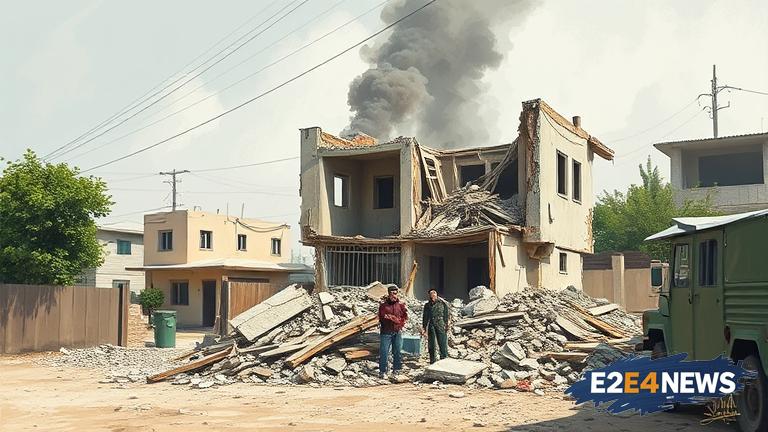The Palestinian territory has witnessed a significant escalation in home demolitions by Israeli forces, resulting in the displacement of hundreds of families. This surge in demolitions has been particularly evident in the West Bank and East Jerusalem, where Israeli authorities have been implementing stringent policies aimed at restricting Palestinian construction and expansion. The demolitions are often carried out under the pretext of lacking proper building permits, which are notoriously difficult for Palestinians to obtain due to discriminatory zoning laws and bureaucratic hurdles. As a result, many Palestinians are forced to build without permits, only to face the threat of demolition and displacement. The humanitarian impact of these demolitions cannot be overstated, as families are left without shelter, livelihoods, and a sense of security. The psychological trauma inflicted upon children and adults alike is also a pressing concern, as the loss of a home can have long-lasting effects on mental health and well-being. Furthermore, the demolitions are often accompanied by the confiscation of personal belongings, including furniture, appliances, and vital documents, exacerbating the sense of loss and dispossession. The international community has widely condemned these demolitions, citing their contravention of international law and the Fourth Geneva Convention. Despite this, Israeli authorities continue to pursue their policy of home demolitions, which many see as a form of collective punishment and a means of asserting control over Palestinian land and resources. The Palestinian leadership has denounced the demolitions as a flagrant violation of human rights and a major obstacle to peace. In response, Palestinian communities have been organizing resistance efforts, including protests, petitions, and advocacy campaigns, to raise awareness about the issue and mobilize international support. The role of social media has been instrumental in this regard, allowing Palestinians to share their stories, document the demolitions, and reach a global audience. However, the Israeli authorities have been cracking down on Palestinian social media activists, arresting and detaining individuals who speak out against the demolitions. The situation on the ground remains dire, with many families facing the imminent threat of displacement and homelessness. The need for urgent action to address this crisis cannot be overstated, and the international community must take concrete steps to hold Israeli authorities accountable for their actions. This includes providing support to affected families, advocating for an end to the demolitions, and working towards a just and lasting resolution to the Israeli-Palestinian conflict. The United Nations and other international organizations have a critical role to play in this regard, and must use their influence to pressure Israeli authorities to cease their destructive policies. Ultimately, the fate of Palestinian families and communities hangs in the balance, and it is imperative that the world takes notice and acts to prevent further suffering. The demolitions are not only a humanitarian issue but also a political one, as they are deeply intertwined with the broader context of the Israeli-Palestinian conflict. The Israeli government’s policies are designed to maintain control over Palestinian land and resources, and to prevent the establishment of a viable Palestinian state. The international community must recognize the demolitions as a symptom of a larger problem, and work towards a comprehensive solution that addresses the root causes of the conflict. This includes promoting a two-state solution, supporting Palestinian state-building efforts, and advocating for an end to the Israeli occupation. Only through a concerted effort can we hope to bring an end to the suffering of Palestinian families and communities, and to build a more just and peaceful future for all.
